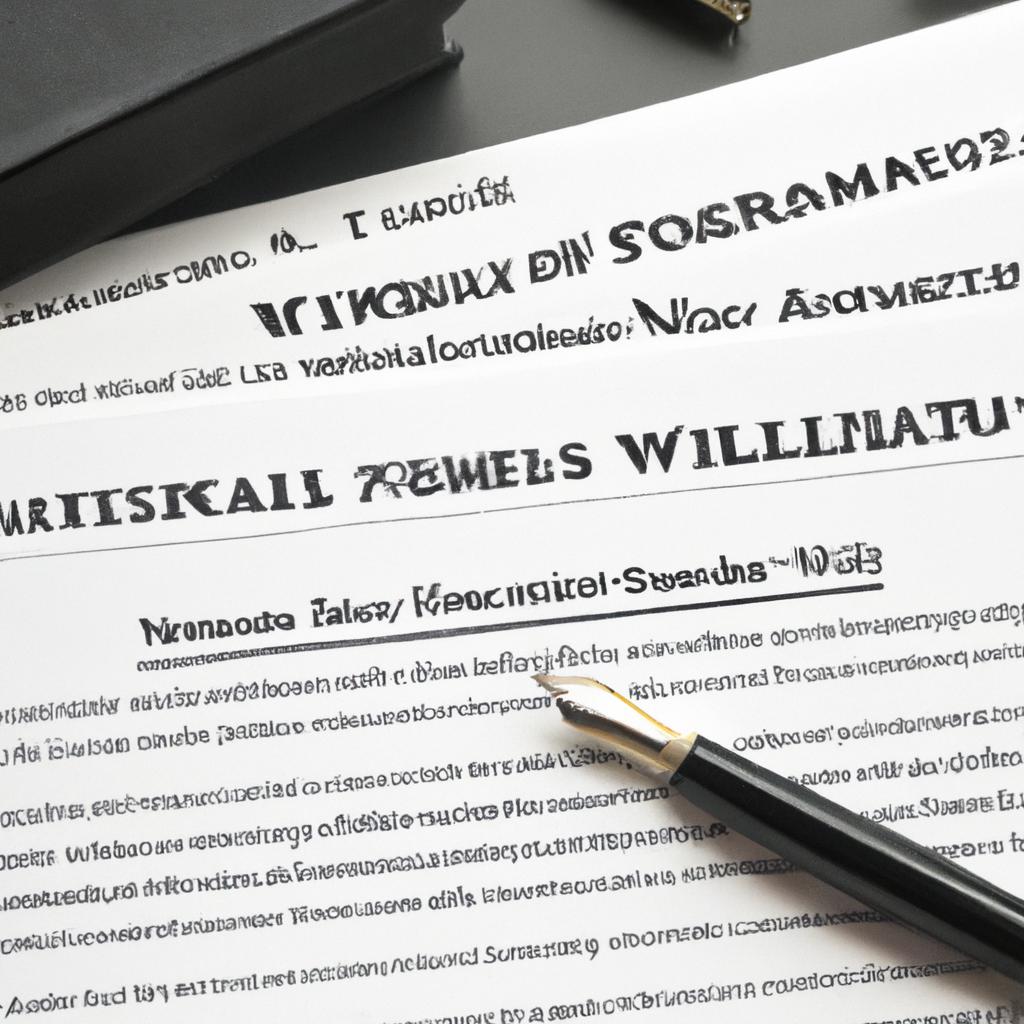In the realm of estate planning, the question often arises: does a hand written will need to be notarized? As experienced attorneys at Morgan Legal Group in New York City, we understand the complexities surrounding this issue. In this article, we will delve into the legal requirements for notarizing a hand written will and provide insight into why this step may be necessary for ensuring the validity and enforceability of your final wishes. Join us as we navigate the intricacies of will execution and offer guidance on how to best protect your estate for future generations.
Overview of Handwritten Wills and Notarization Requirements
When it comes to hand written wills, also known as holographic wills, the rules can vary depending on the state where the will is being executed. In most states, a hand written will does not necessarily need to be notarized to be considered valid. However, it is highly recommended to have the will notarized as it can help prevent disputes over the authenticity of the document.
- Hand written wills must meet certain requirements to be considered valid, such as being entirely in the testator’s (person making the will) handwriting, dated and signed by the testator.
- Having a hand written will notarized can provide an extra layer of protection, as the notary public can attest to the validity of the testator’s signature and ensure that the will was executed properly.
| State | Notarization Requirement |
|---|---|
| New York | Not required, but recommended |
| California | Not required |
| Texas | Not required |

Importance of Proper Execution and Witnessing of Handwritten Wills
Proper execution and witnessing of handwritten wills is critical to ensure that the document is legally valid and enforceable. In many jurisdictions, a handwritten will, also known as a holographic will, does not need to be notarized to be considered valid. However, it must meet certain requirements to be legally binding.
When creating a handwritten will, it is important to follow these key guidelines:
- Ensure the entire document is written in the testator’s (creator’s) handwriting.
- Include the date of creation on the document.
- Clearly state the testator’s intentions for distribution of assets and property.
In addition to these requirements, having witnesses present during the creation and signing of the will can help prevent disputes and challenges to its validity in the future.

Legal Considerations and Potential Challenges with Handwritten Wills
When it comes to handwritten wills, one common question that arises is whether or not they need to be notarized. In many states, including New York, a handwritten will does not need to be notarized to be considered valid. However, having a notary public witness the signing of a will can help prevent potential challenges to its validity in the future.
While notarization is not required for a handwritten will to be valid, it is still recommended to consult with an experienced estate planning attorney to ensure that the will meets all legal requirements. Without proper legal guidance, handwritten wills can be susceptible to challenges based on issues such as lack of clarity, authenticity, or undue influence. To protect your wishes and ensure that your assets are distributed as you intend, it is crucial to seek professional legal advice when creating a will, whether it is handwritten or typed.

Expert Recommendations for Ensuring Validity and Enforceability of Handwritten Wills
When it comes to the validity and enforceability of handwritten wills, it is important to understand the legal requirements to ensure that your final wishes are carried out as intended. While notarization is not always necessary for a handwritten will to be legally binding, it can certainly add an extra layer of protection against any potential challenges to the document’s validity. In some states, having a handwritten will notarized can help to establish the authenticity of the testator’s signature and ensure that the document was executed properly.
However, even if notarization is not required, there are certain steps that can be taken to help ensure the validity and enforceability of a handwritten will. These include clearly stating the testator’s intentions, ensuring that the document is signed and dated, and having witnesses present to attest to the testator’s mental capacity and voluntariness. By following these expert recommendations and seeking legal guidance when needed, you can help to protect your handwritten will from any potential challenges in the future.
Q&A
Q: Does a hand written will need to be notarized?
A: In some states, a hand written will, also known as a holographic will, may not require notarization to be considered legally valid. However, it is generally recommended to have a will notarized to avoid any potential challenges to its authenticity in the future.
Final Thoughts
In conclusion, while notarizing a handwritten will is not required in many states, it can provide an extra level of authentication and peace of mind for all parties involved. It is always recommended to consult with an estate planning attorney to ensure that your will meets all necessary legal requirements and properly reflects your wishes. Whether you choose to notarize your handwritten will or not, the most important thing is that your intentions are clearly communicated and legally binding. Thank you for reading and remember, when it comes to something as important as your will, it’s always better to be safe than sorry.












